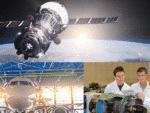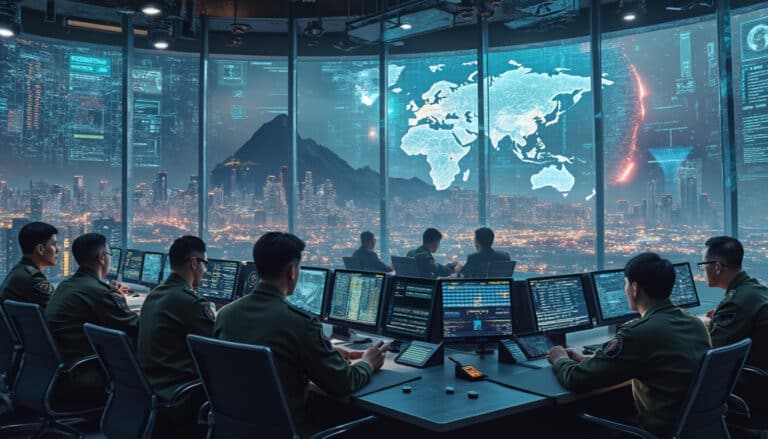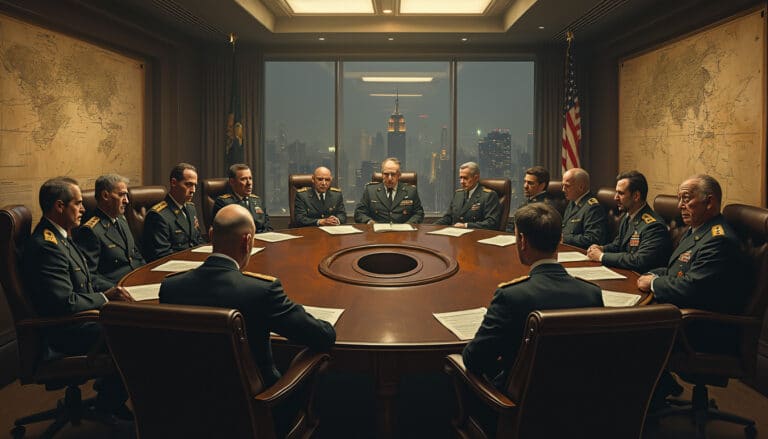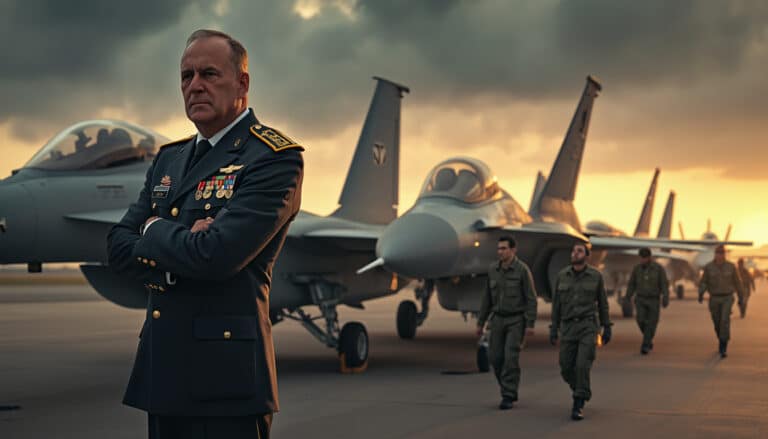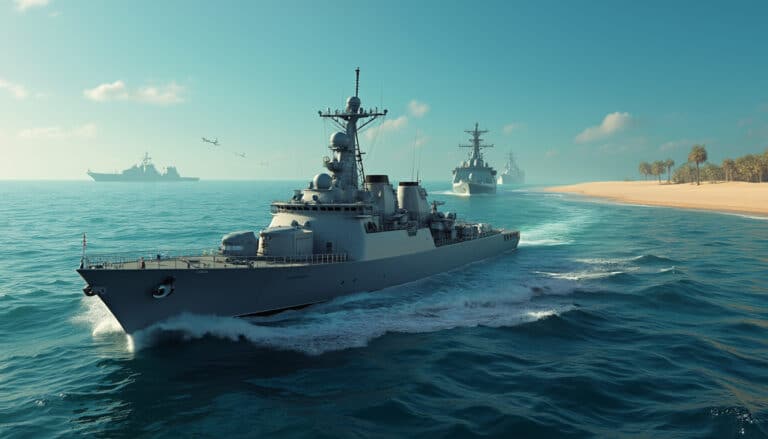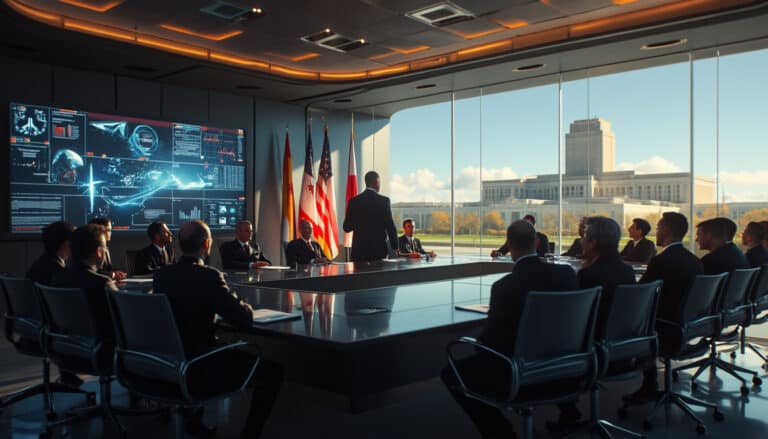Defense technologies play a crucial role in redefining global security. In an era of rapid innovation and digitalization, tools such as artificial intelligence, autonomous drones, and cybersecurity systems are revolutionizing traditional approaches to defense and peacekeeping. These advances offer new military capabilities while raising ethical and strategic questions. By understanding how these technologies are transforming not only militaries, but also international relations and state security, it becomes essential to ensure that they are used to promote stability and protection of populations on a global scale.
Table des matières
ToggleThe impact of advanced technologies on security
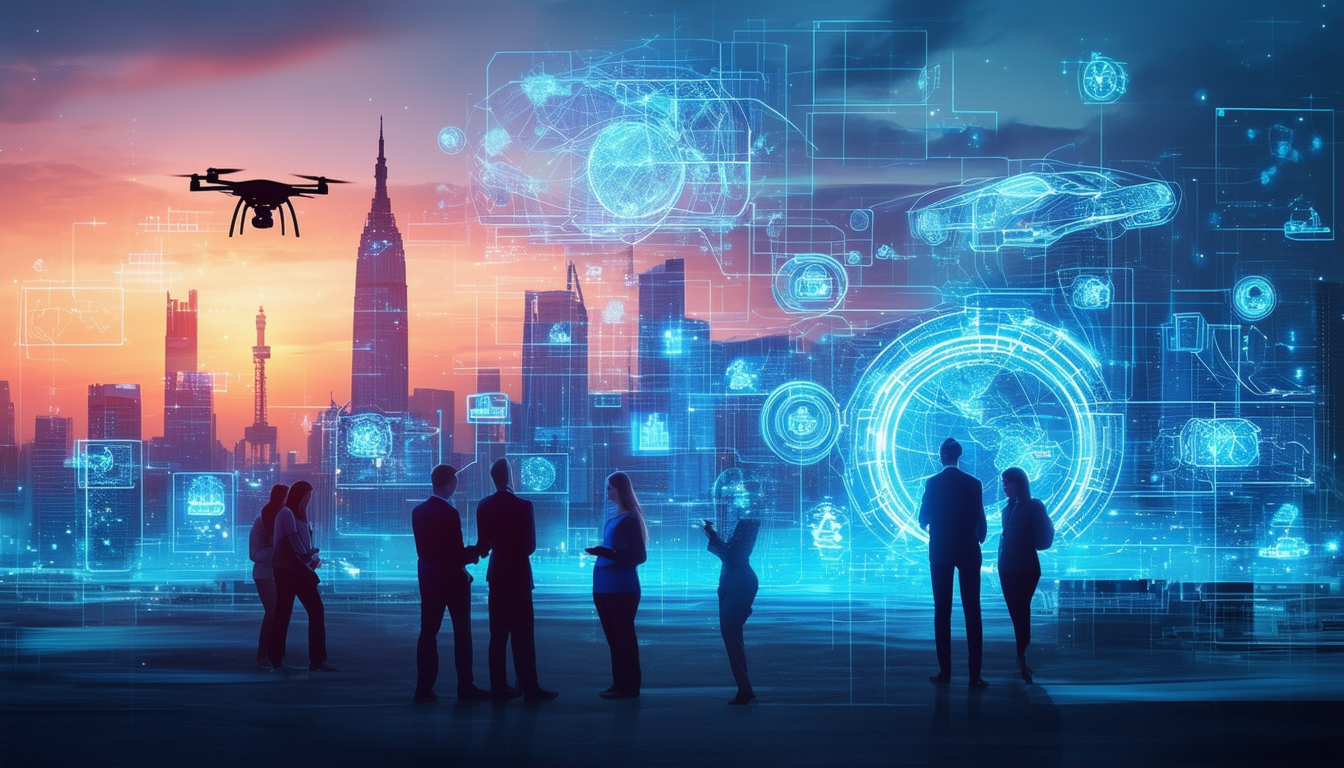
Advanced technologies have a significant impact on global security. With the rise of new innovations, countries are redefining their defense strategies to adapt to ever-changing threats. Surveillance systems, artificial intelligence (AI) and drones are examples that are transforming the military landscape.
There systematic interconnection weapons systems allows for increased operational efficiency. For example, integrated command and control platforms provide a holistic view of operations, facilitating rapid and informed decision-making. This generates a decisive tactical advantage in critical situations.
In the field of aviation, advances in detection systems and of drone technology enable observation and intervention missions to be carried out with unrivaled precision. These unmanned aircraft reduce risks for military personnel while increasing mission effectiveness.
THE cyber threats also represent a major challenge for global security. The integration of AI into defense systems offers an opportunity to anticipate and counter these threats. By using complex algorithms, it becomes possible to analyze large data to detect suspicious behavior in real time.
Another key area is innovation in military health thanks to technology. Advanced medical devices and telemedicine enable rapid response in the event of an injury, thereby increasing the survival rate of soldiers on the battlefield.
It is essential to remain aware of international regulations which evolve in parallel with technological revolutions. Ensuring compliance with these standards is crucial to maintaining a balance in military development and avoiding unnecessary escalations of conflict.
Innovations in defense technologies are not limited to military applications. They also influence civil domains, such as critical infrastructure protection and disaster management. This highlights the importance of cross-sector collaborations to maximize security globally.
In short, the adoption of advanced technologies by military forces is shaping the future of defense. Nations must navigate this complex landscape that offers opportunities while presenting substantial global security challenges.
New monitoring tools and methods
THE defense technologies modern technologies play a crucial role in transforming our global security. By integrating advanced systems, nations are able to respond more effectively to current and emerging threats. Among these innovations, surveillance has evolved profoundly, thus increasing the capacity to anticipate risks.
One of the main tools in the field of surveillance is the use of drones. These devices enable real-time data collection, at an altitude and range not easily accessible by other means. They are used for various missions, such as:
- Recognition of sensitive areas
- Monitoring enemy troop movements
- Assessment of emergency situations during natural disasters
THE smart sensors are also a major asset. These devices, capable of detecting anomalies in strategic sectors, improve responsiveness in terms of threat prevention. Their integration into security management systems makes it possible to optimize decision-making.
Finally, data analysis viaartificial intelligence has revolutionized the way information is processed. Algorithms make it possible to cross-reference data from multiple sources, thus facilitating the rapid identification of potential threats. The use of predictive analysis tools also helps anticipate crises, thus improving strategic planning.
The synergy between these technologies creates a new security ecosystem that not only strengthens national defense, but also contributes to regional and international stability. Cooperation between countries allowing the sharing of these innovations will be decisive in facing the challenges of tomorrow.
Artificial Intelligence and Decision Making
The impact of advanced technologies on global security is undeniable. With the emergence of new technologies such asartificial intelligence, cybersecurity and autonomous systems, nations are rethinking their defense strategies. This transformation responds to the need for rapid adaptation in the face of constantly evolving threats.
Among the key technologies,artificial intelligence plays a leading role in the decision making in terms of security. Thanks to advanced algorithms and massive data analysis, armed forces can now anticipate conflict scenarios, assess risks and determine the best possible responses.
The benefits of incorporating artificial intelligence into decision-making processes include:
- Let’s make decisions faster and based on accurate data.
- Reduced human errors in threat analysis.
- Ability to analyze large data sets in real time.
- Facilitating collaboration between different areas of expertise.
This ability to process information quickly and efficiently allows military decision-makers to adapt to increasingly complex environments. However, the use of artificial intelligence also raises ethical and transparency, particularly with regard to the responsibility for decisions taken by autonomous systems.
Additionally, the ability to integrate artificial intelligence into defense operations raises questions about the cybersecurity. Protecting sensitive data and preventing cyberattacks are becoming major priorities. Military infrastructure must be designed not only to resist attacks but also to prevent potential intrusions that could compromise national security.
In this sense, the development of an integrated approach, combining cutting-edge technologies with increased vigilance in the face of new threats, is essential to guarantee global security adapted to the challenges of the 21st century. Discussions around these innovations must be accompanied by a debate on regulation and governance, in order to ensure ethical and responsible use of advanced technologies in the field of defense.
The ethical and political challenges of new technologies
THE technological advances in the field of defense have sparked significant debates regarding their impact on global security. From artificial intelligence to autonomous warfare, these innovations challenge the ethical and political frameworks that govern the use of military arsenals.
THE drones and autonomous systems are at the heart of these discussions. Their ability to conduct operations without human intervention raises questions about the responsibility and human control. In the event of an error or collateral damage, who is responsible? States, manufacturers or the algorithms themselves?
Furthermore, the use of drones for targeted strikes is not without challenges. These systems, although effective, can eliminate targets without respecting the principles of distinction and proportionality provided for by the international humanitarian law. This poses ethical dilemmas about the legitimacy of military actions.
Furthermore, the surveillance technologies such as satellites and sensors have transformed the intelligence capabilities of nations. This makes it possible to anticipate and prevent conflicts, but at what cost? The expansion of surveillance raises concerns about private life and human rights.
This results in a need to adapt legal frameworks to new technological realities. States and international actors must collaborate to establish rules that govern the use of these innovations in order to avoid potential abuses.
Participation in international conferences and engagement in ethical forums are essential. This makes it possible to raise awareness among political and military decision-makers of contemporary issues linked to defense technologies.
Finally, the role of technology companies in their development is crucial. They must adopt an ethic of responsibility, emphasizing development practices that take into account the socio-political implications of their innovations.
The responsibility of state actors
The rapid progress of defense technologies raise major ethical and political questions that demand the attention of governments and international organizations. These challenges impact not only military decisions, but also the perception of the role of States on the world stage.
One of the crucial issues lies in the responsibility of state actors faced with the use of these new technologies. The emergence of autonomous weapons systems, such as drones and combat robots, raises the question of the legitimacy and morality of their use. Who will be responsible in the event of an incorrect decision made by a machine? This question calls into question the existing legal framework and the way in which armed conflicts are governed.
States must consider several elements to navigate this complex landscape:
- Transparency in the development and use of these technologies to strengthen trust between nations.
- International collaboration to establish ethical standards and protocols regarding the use of autonomous weapons systems.
- Responsibility for mistakes made, ensuring that victims of military actions are recognized and compensated, regardless of the technology used.
- Adequate training military and political decision-makers on the ethical implications of the use of these new technologies.
Every decision related to the integration of artificial intelligence and advanced weapons systems must be carefully evaluated, taking into account the potential consequences on national sovereignty and the global security.
Geopolitical turbulence exacerbated by new technologies requires an adaptation of security strategies while respecting fundamental ethical principles. State actors have the responsibility to ensure that innovation serves peace and not the escalation of conflicts.
International regulation of security technologies
The news defense technologies are transforming the global security landscape. They offer undeniable advantages, but also pose ethical challenges And policies important. The implementation of these technologies raises questions about accountability, transparency and respect for human rights.
One of the main challenges lies in the international regulation of security technologies. In an increasingly interconnected world, cooperation between states is essential to establish common standards. However, the lack of a unified legal framework makes it difficult to manage new threats. Here are some key issues:
- Cultural and political differences : Each country has its own values and priorities, which makes it difficult to adhere to common standards.
- Proliferation of digital weapons : Technologies such as drones or artificial intelligence can be misused by non-state actors.
- Data protection : Technological advances increase the risks of infringement of privacy and individual rights.
To navigate this complex environment, states must engage in multilateral dialogues. International forums such as the UN or NATO could play a crucial role in formulating standards. In addition, collaboration with experts in ethics and in international law could facilitate the development of a framework adapted to contemporary realities.
At the same time, it is imperative to involve civil society in these discussions. Citizens must be informed of the implications of defense technologies, in order to be able to participate in decision-making and the definition of security priorities.
Finally, the regulation of defense technologies is a complex issue that requires special attention. International cooperation, respect for human rights and the integration of ethical values in technological development are key elements to guarantee a secure and responsible company.












